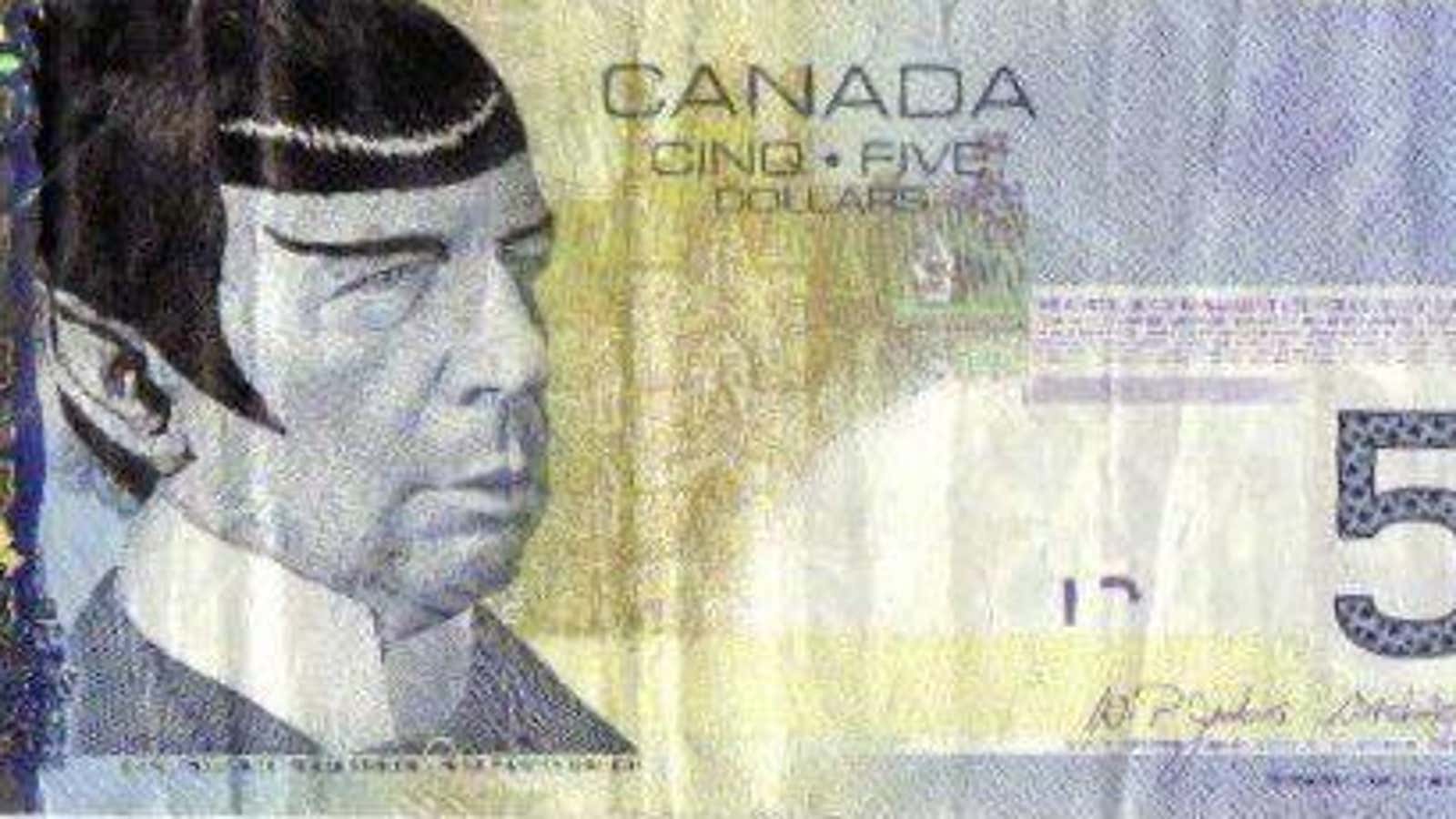This post has been updated with a statement from the Bank of Canada.
Upon news of Leonard Nimoy’s passing last Friday, The Canadian Design Resource (CDR) tweeted a call to arms:
“Spocking fives,” as it’s called, is not a new campaign but in fact a fine Canadian tradition that involves etching the beloved Vulcan’s profile over Canada’s seventh prime minister Sir Wilfrid Laurier on the five-dollar banknote.
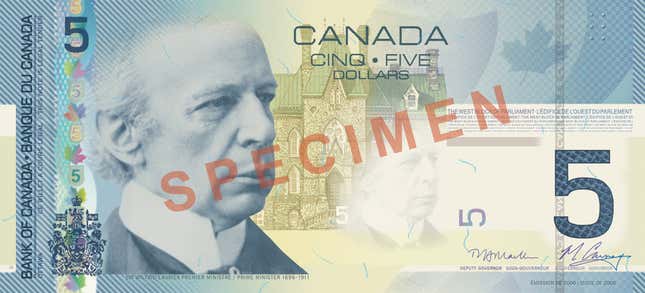
“This series of Canadian bills was an easy target,” explains CDR’s publisher Todd Falkowsky. “The existing portraits are quite large and can be improvised with easily and the colour of our $5’s are the same blue as Spock’s uniform,” he tells Quartz.
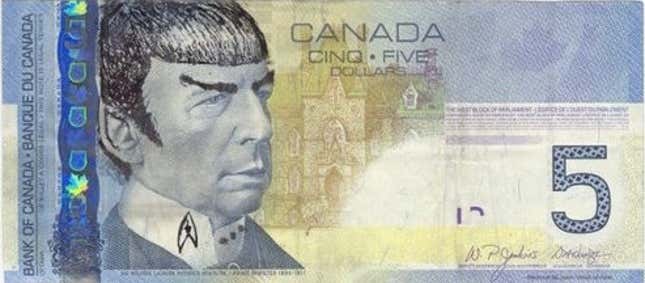
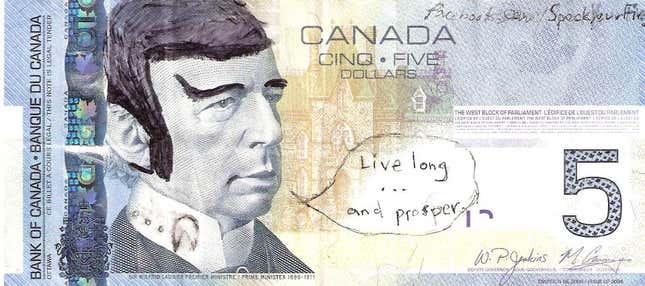
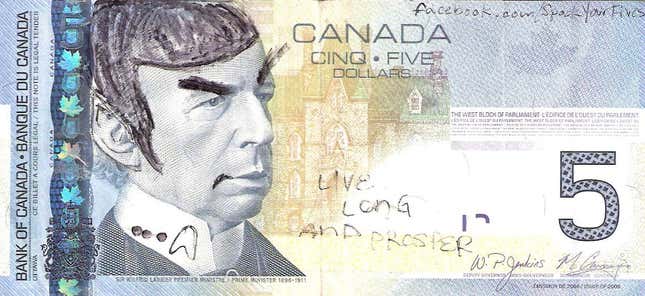
Falkowsky said the practice is harmless. “People have always played with money this way… love notes, return to sender, birthday greetings and remixing the images. I am not sure if it makes them harder to use but I’ve tried one in a parking garage and it worked no problem,” he says.
Update (March 2, 2015): A Bank of Canada spokeswoman, Josianne Ménard, sent the following statement regarding the legality of marking Canadian bank notes:
It is not illegal to write or make other markings on bank notes because neither the Bank of Canada Act nor the Criminal Code deals with mutilation or defacement of bank notes. However, there are important reasons why it should not be done.
Writing on a bank note may interfere with the security features and reduces its lifespan. Markings on a note may also prevent it from being accepted in a transaction. Furthermore, the Bank of Canada feels that writing and markings on bank notes are inappropriate as they are a symbol of our country and a source of national pride.
Numerous sightings of the Spock fives in circulation have been noted online. The practice has at least two active Facebook groups.
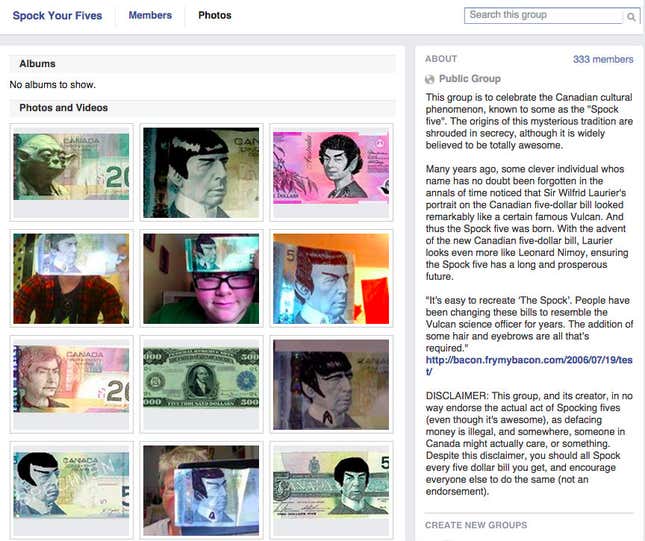
But “Spocking Fives” is not as easy to do these days. In 2011, the Bank of Canada announced a redesign of banknotes with enhanced security features. Though artwork on the bills have significantly changed, the issue is not so much the design but the substrate on which they are printed on.
With the transition from cotton paper to “laundry-proof” plastic polymer notes, it’s been harder to draw on the bills with a regular pen. “I get the transition’s benefits, but I’ve always liked discovering one in my change. It’s like visiting someone else’s memory, participation, moment and creativity,” reflects Falkowsky.
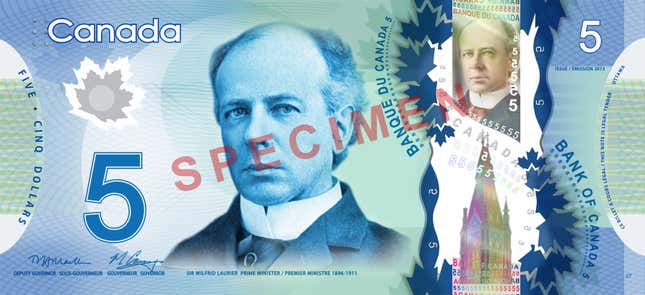
But the doodlers will not be deterred. Huffington Post highlighted digital interventions to keep the tradition alive.
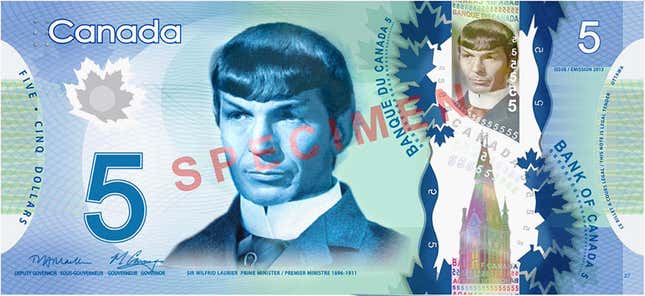
While other known artists have refaced other banknotes — memorably James Charles’ Spock on the US $5 note — perhaps nowhere else has drawing on money been so instilled in the vernacular as it is in Canada. Canadian artists of all mettle using various tools have drawn other celebrities on banknotes including Professor Snape, Drake, Justin Beiber, and even William Shatner, noting that Captain Kirk and Scotty were actually the Canadians aboard the starship Enterprise.




